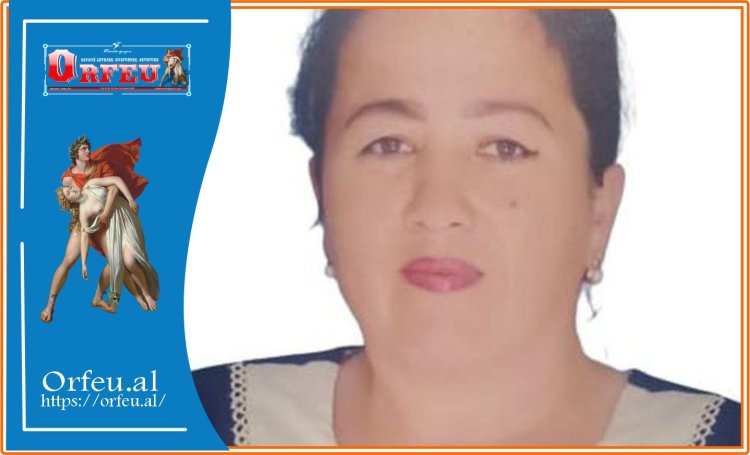OMONOVA NILUFAR ERKINOVNA
Omonova Nilufar Erkinovna was born on March 15, 1981, in Karshi district of Kashqadarya region. Her nationality is Uzbek. She speaks fluently in English and Uzbek She studied in foreign languages faculty at Karshi State University from 1998 to 2002. In the beginning of 2002, she began teaching English to students at the Karshi Pedagogical College. Since 2010, she has continued her work at school #26 in Karshi. Her students actively participate in the annual Olympiad and take #1 place in the district and the capital. In 2023, her family won #3 place in "Family contest" in the regional stage. She also received "Nomination of the most exemplary young generation promoter" in "Women of the Year". During the 2023 academic year, the book of Kashkadarya`s intellectuals highlighted her work experience. More than her 10 articles have been regularly published, and in 2022 she was awarded medals entitled "Honor" and in 2023 "Devotee of Education". She has participated in various types of training actively. In 2024 she wrote methodological article and was nominated as the most initiative teacher of the year.
Respect to the teacher in independent Uzbekistan
Annotation: This article will provide a comprehensive overview of our teachers' respect and independent Uzbekistan
Key words: Teacher, Uzbekistan, independence, symbol.
Introduction: Respect to teachers! Today you are the embodiment of courage and courage!
It is not surprising that Abdulla Awlani said that "the happiness of every nation, the peace and joy of the state depends on the good education of the youth" means that teachers have a great responsibility. In fact, great courage and courage are needed to bring up perfect, mature and complete, intellectually and morally pure, patriotic and humanitarian generations for the future great country. Especially today, when the demands on teachers have increased even more. Because they have to develop our educational system on the basis of international standards, introduce advanced foreign experiences, innovative pedagogical and information and communication technologies into the educational process, teach students modern professions, and increase their intellectual potential. huge tasks are also set.
The main part
Dear teachers and coaches!
We always bow down to such honorable and respectable people as you!
We wish you all good health, family peace, great success in your honorable and hard work!
Uzbekistan is a country where science and culture have been developing since ancient times. In particular, sciences such as astronomy, mathematics, medicine, chemistry, history, philosophy, linguistics, literature, and sculpture, textiles, pottery, glassmaking and other professions are widely developed. Nowadays, scientists of Uzbekistan are actively studying the scientific heritage left by the thinkers of the distant past, enriching science with their new discoveries, making a worthy contribution to the development of world science. became one of the major scientific and cultural centers in the East, where the first scientific institutions and societies similar to academies were established. Khorezmshah Abul Abbas ibn Ma'mun, being a ruler interested in culture and science, supported scientists, poets, musicians, calligraphers, architects and artists in every way. Medical worker Abu Ali ibn Sina (Avicenna), representative of exact sciences Abu Rayhan Beruni, historian ibn Miskawayh, mathematician Abu Nasr ibn Iraq, philosopher Abu Sahl Masikhi, physician ibn Hammar and other Eastern thinkers and encyclopedists served in the palace of Khorezmshahs in Urganch. The first academy in the Muslim East - "Baytul Hikmat" - was led by the famous mathematician al-Khwarizmi (783-850), who participated in measuring the longitude of the earth's meridian. A work on the construction of an astrolabe, "Kitab aljabr wal muqabala", one of the first "Astronomical Tables" in the world, and a number of scientific treatises - "Treatise on Indian Arithmetic", "Treatise on Sundials", "Treatise on Music" and other scientific treatises the works belong to his pen. Al-Khwarizmi was the first to solve a series of algebraic equations, he was the first to introduce the new number "zero" into the number series, which extended number theory and made it possible to move to negative numbers. For these successes, a new branch of mathematics was named "algebra" in honor of al-Khwarizmi. In al-Khwarizmi's famous Kitab al-jabr wan-muqabala (The Book of Restatement and Contradiction), algebra is considered for the first time as an independent branch of mathematics. The main concept of modern cybernetics, one of its necessary bases "algorithm" is etymologically connected with the name of al-Khwarizmi. A unique academy - "House of Scientists" was established in Urganch, where research was conducted in astronomy, philosophy, mathematics, and medicine. But this situation remained in Urganch until Mahmud Ghaznavi conquered Khorezm in 1017.
Thus, in the East, especially in Central Asia, it became a tradition to organize scientific activity in the form of an academy, and institutions similar to the academy in Urganch were created (built) in the following centuries. In Samarkand, the academy was founded by Mirza Muhammad Taragai Ulugbek in the 15th century. The academy had an observatory, a rich library of that time and a higher educational institution - a madrasah. Along with religious subjects, mathematics, geometry, astronomy, medicine, geography and other secular sciences were taught in the madrasa. Famous scientists - Qazizada Rumi, Ghiyaziddin Jamshid al-Koshi and Ali Kushchi taught at Ulugbek's academy, and the fields of research were also in line with their directions. The Ulugbek Academy in Samarkand made a significant contribution to the development of the sciences of mathematics, astronomy and geography.
Summary
In conclusion, it should be said that every great person was educated, trained and taught by teachers. Teaching and mentoring professions are very sensitive. To become a great person, you need to learn from great teachers.
Used literature.

